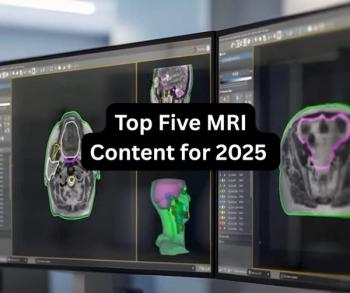
‘Molecular switch’ protein protects heart from damage
A single amino acid substitution in a cardiac muscle protein improved cardiac function in mice and in damaged human heart cells. This amino acid could be the key to a new gene or cell-based therapy for cardiovascular disease, according to a study published online Jan. 22 in Nature Medicine.
A single amino acid substitution in a cardiac muscle protein improved cardiac function in mice and in damaged human heart cells. This amino acid could be the key to a new gene or cell-based therapy for cardiovascular disease, according to a study published online Jan. 22 in Nature Medicine.
Researchers from Brigham and Women's Hospital and the University of Michigan Medical School used genetic engineering technology to replace alanine, one amino acid found in the adult form of troponin I, with a histidine from the fetal form of the same protein.
"The most important finding of our study was that this modified troponin I protein dramatically improved heart function under a variety of conditions associated with cardiovascular damage and heart failure," said colead author Dr. Sharlene Day, an assistant professor of internal medicine at Michigan.
Troponin I controls the calcium sensitivity of heart muscle cells, important for efficient blood flow and contractility. When cardiac blood flow is compromised, acidosis results, which causes cells to become less responsive to calcium, potentially leading to heart damage and cardiac failure.
The fetal form of troponin I is more resistant than the adult form to the harmful effects of acidosis and low oxygen that can occur during pregnancy or delivery. Fetal hearts largely retain their ability to respond to calcium under adverse conditions. Shortly before or after birth, however, the gene for fetal troponin I is turned off and the adult gene is turned on.
"Although the adult form of troponin I is more susceptible to the harmful effects of acidosis, it has other important properties that enable the adult heart to respond to hormones during exercise and periods of stress," said colead author Margaret Westfall, Ph.D., an assistant professor of surgery at Michigan.
In essence, the researchers created a genetic hybrid of troponin I to combine the advantages of the fetal and adult form of the protein. The modified protein helps the heart respond to a harsh intracellular environment by boosting its performance during periods of stress, according to the study.
In a series of experiments, the researchers studied the effects of the histidine substitution in troponin I on:
- transgenic mice with the modified form of the protein and normal littermates without the modified protein
- hearts removed from both types of research mice
- heart cells called myocytes, which were isolated from rats and from severely damaged human hearts of patients who received heart transplants
In experiments with isolated myocytes, the researchers used a virus to deliver the modified troponin I gene. They soon discovered they did not need 100% gene replacement to see a biological effect in individual myofilaments. Favorable effects were seen at 20% to 50% replacement.
The team found that the transgenic mice performed far better after experiencing decreased oxygen supply to the heart than did the mice without the modified tropinin I protein. The hearts from transgenic mice contracted more efficiently and used less energy to perform more work than hearts from nontransgenic littermates.
The team is studying the effects of the genetically engineered troponin I protein in other research animals and exploring mechanisms responsible for its heart-protective effect. They believe the modified troponin I protein senses changes within cardiac muscle cells and responds by improving the cells' ability to contract efficiently in response to stress.
The University of Michigan has filed a patent application on the genetically engineered troponin I protein and its method for regulating cardiac performance. The research was supported with funding from the American Heart Association and the National Heart, Lung, and Blood Institute of the National Institutes of Health.
For more information from the Diagnostic Imaging archives:
Newsletter
Stay at the forefront of radiology with the Diagnostic Imaging newsletter, delivering the latest news, clinical insights, and imaging advancements for today’s radiologists.












